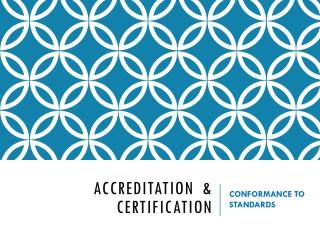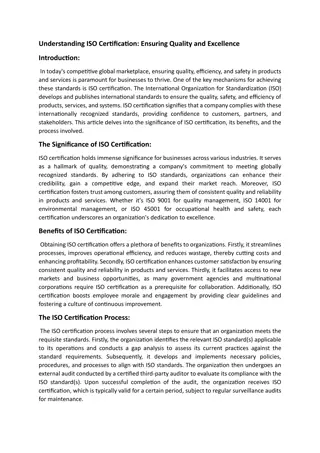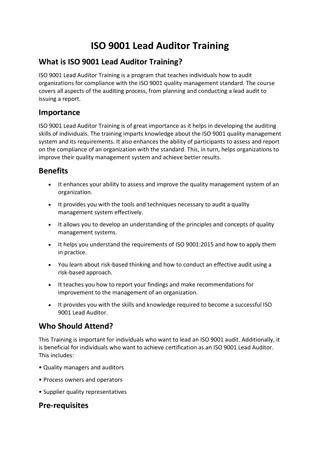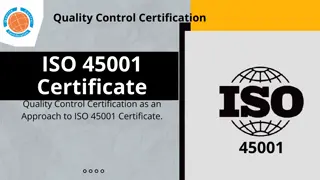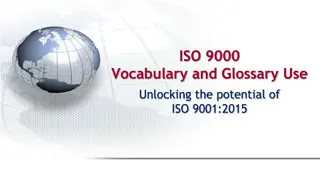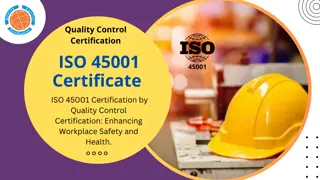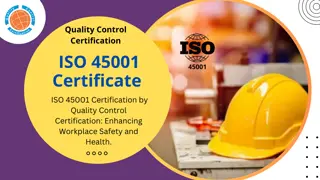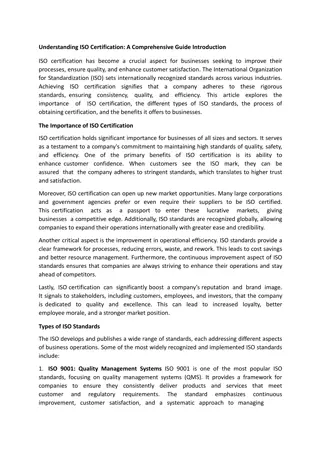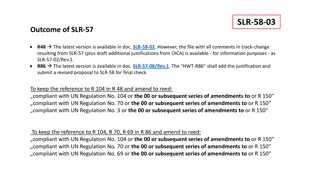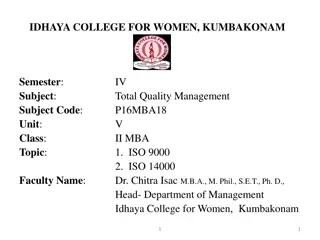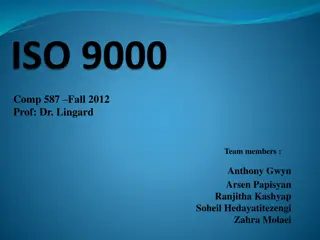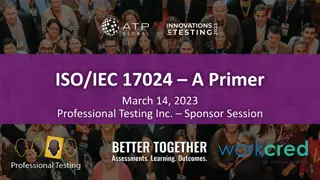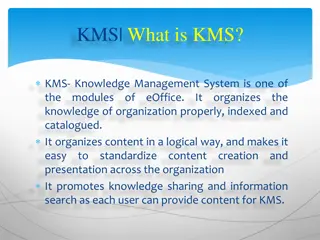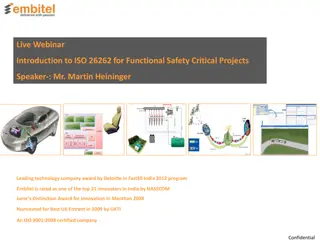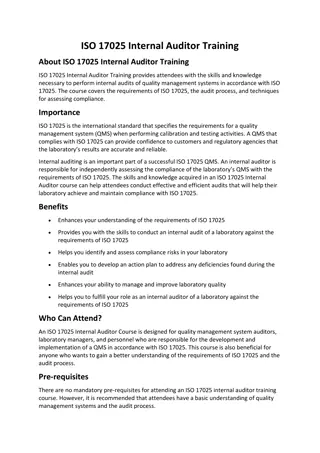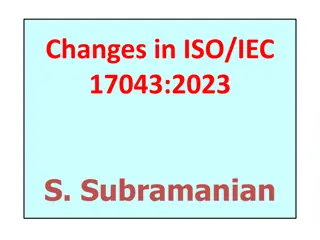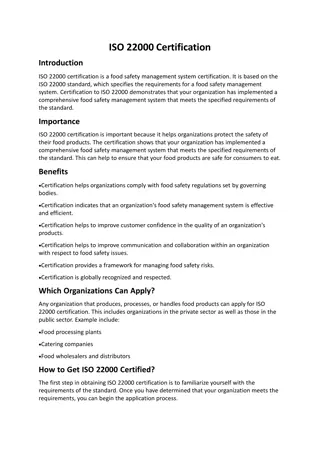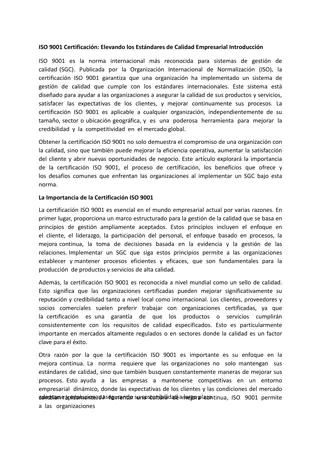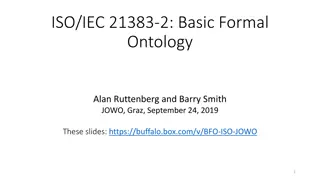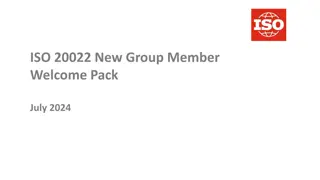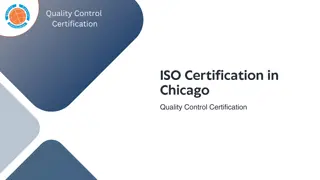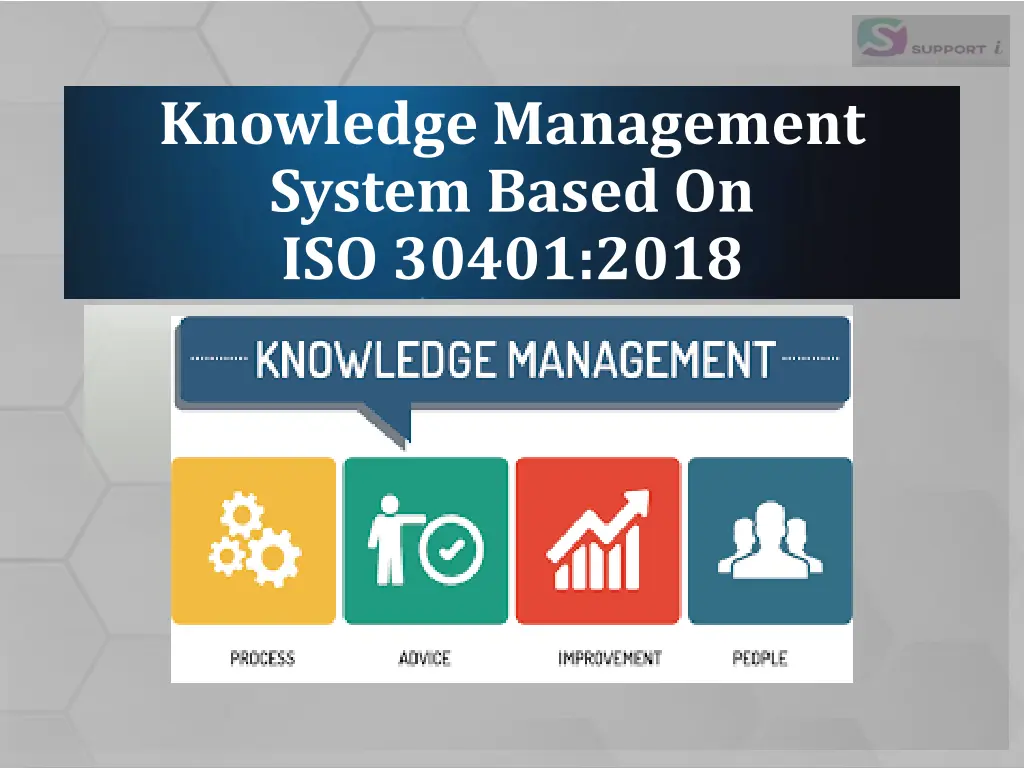
Understanding Knowledge Management System ISO 30401
"Discover the significance of knowledge management in today's organizations, emphasizing the ISO 30401 standards. Learn how effective knowledge management can enhance collaboration, competitiveness, and organizational effectiveness."
Download Presentation

Please find below an Image/Link to download the presentation.
The content on the website is provided AS IS for your information and personal use only. It may not be sold, licensed, or shared on other websites without obtaining consent from the author. If you encounter any issues during the download, it is possible that the publisher has removed the file from their server.
You are allowed to download the files provided on this website for personal or commercial use, subject to the condition that they are used lawfully. All files are the property of their respective owners.
The content on the website is provided AS IS for your information and personal use only. It may not be sold, licensed, or shared on other websites without obtaining consent from the author.
E N D
Presentation Transcript
Knowledge Management System Based On ISO 30401:2018
OVERVIEW 6/26/2025 2
What is ISO 30401? Knowledge management is a discipline focused on ways that organizations create and use knowledge. Each organization will craft a knowledge management approach, with respect to its own business and operational environment, reflecting their specific needs and desired outcomes. 6/26/2025 3
The importance of knowledge management a) Organizational knowledge is becoming a key differentiator for effectiveness, increased collaboration and competition. b) Knowledge work is increasingly important in many societies and organizations. Many economies aspire to become knowledge economies, where knowledge is the main source of wealth. In this context, knowledge becomes a core asset for organizations. c) An increased access to knowledge will create opportunities for the professional development of people in the organization through learning, practices and exchanges. d) Organizations can no longer rely on the spontaneous diffusion of knowledge to keep up with the pace of change. Instead knowledge must be deliberately created, consolidated, applied, and reused faster than the rate of change. 6/26/2025 4
e) Geographically dispersed and decentralized organizations, conducting the same processes and delivering the same services in multiple locations, can gain tremendous advantage through sharing practices, expertise and learning across organizational boundaries. f) Workforce attrition and turnover in today's society has implications for knowledge management. In many organizations, critical knowledge is often soloed and/or retained by experts, at the risk of being lost when the organization changes or these experts leave. g) Effective knowledge management supports collaboration between different organizations to achieve shared objectives. 6/26/2025 5
Relationship between knowledge management and adjacent Disciplines a) Information management Knowledge management and information management are often confused, therefore it is important to distinguish between these two disciplines. 6/26/2025 7
Clause 4: Context of the Organisation 4.1 Understanding the Organization and its context 4.2 4. Context of the Organization 4.4 Knowledge Management system Understanding the needs and expectations of interested parties 4.3 Determining the scope of the knowledge management system 6/26/2025 8
Clause 5: Leadership 5.1 Leadership & Commitment 5.2 Policy 5.3 Organizational Roles , Responsibilities & Authorities 5. Leadership 6/26/2025 9
Clause 6. Planning 6.2 Knowledge Management objectives and planning to achieve them 6.1 Actions to address risks & opportunities Planning 6/26/2025 10
Clause 7: Support 7.1 resources 7.5 7.2 Documented Information Competence Support 7.4 7.3 Awareness communication 6/26/2025 11
Clause 8 : Operation 6/26/2025 12
Clause 9: Performance evaluation 9.1 Monitoring, measurement, analysis and evaluation Performance Evaluation 9.2 9.3 Internal Audit Managemen t Review 6/26/2025 13
Clause 10: Continual Improvement 10.2 Continual improvements 10.1 Nonconformity and corrective action 6/26/2025 14

